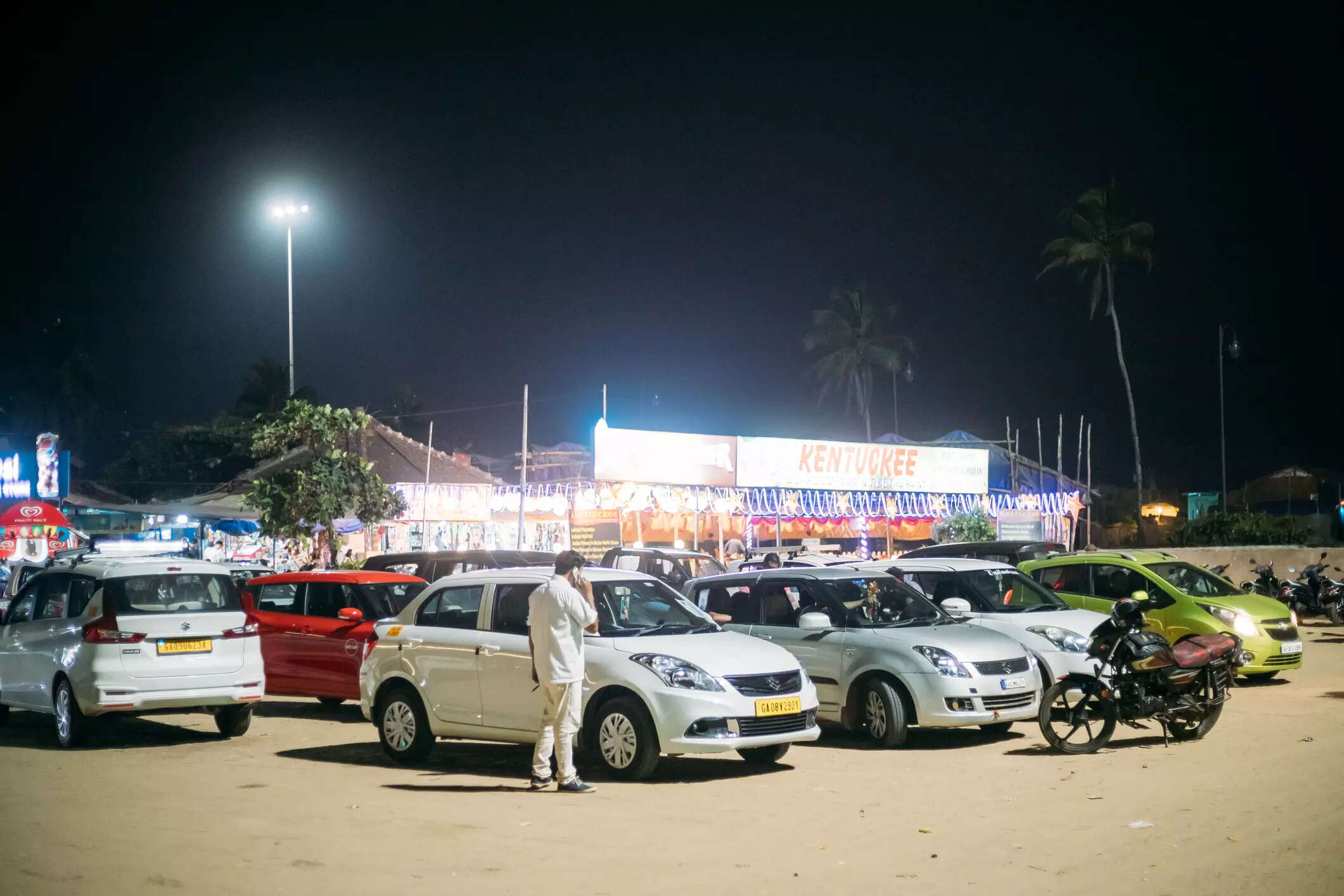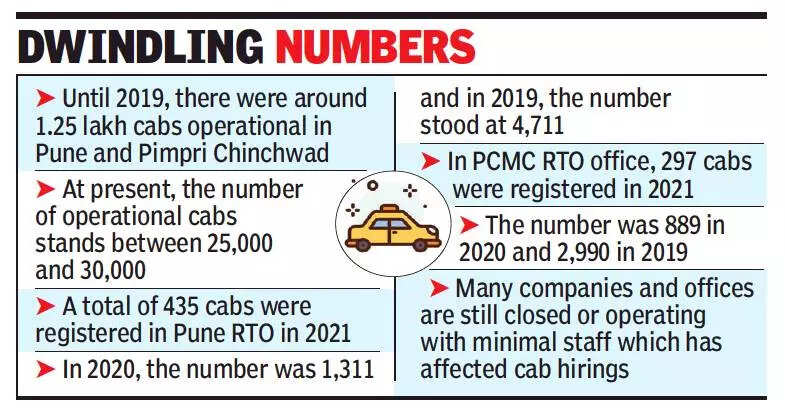
PUNE: Close to 80% of the cabs operating in Pune and Pimpri Chinchwad civic limits have stopped plying in the past one-and-a-half years making it difficult for commuters to find a vehicle during emergencies.
Guru Katti, the president of Swarajya Vahan Chalak Sanghatna, a union of cab drivers, said around 30% cabbies have gone back to their native towns with their vehicles and are yet to return to the city. Another 30% of the cabs have been confiscated by the banks and other financial institutions because the drivers or the vehicle owners couldn’t pay their monthly EMIs on time, he said.
“Around 8% to 10% of them have gone ahead and changed their commercial vehicles to private ones so that they can sell them at decent prices. The remaining drivers have decided to keep their vehicles at home and go in for some other profession,” Katti told TOI.
Figures of Pune and Pimpri Chinchwad Regional Transport Offices (RTOs) show a sharp dip in the number of cab registrations. In 2021, there has been a drop of around 67% in registrations in the Pune RTO compared to 2020. When compared to 2019, the dip stands at 91%. Similarly, there has been a dip of around 67% in cab registrations in 2021 compared to 2020 in the Pimpri Chinchwad RTO. When compared to 2019, the fall is more than 90%.
“Business has been badly hit because of the pandemic and it’s certainly not looking up either for cab drivers. Banks and financial companies started to hound many of us for EMIs, which was impossible to meet for most of us. Prices of fuel have been extremely high for almost a year now and that too has hit business,” Katti said.
Anwar Shaikh, who runs a transport company, said he had seven cars but only two were operational now.
“The drivers went back and didn’t return. One of the cars was taken away by the bank as I couldn’t pay the EMI. Business has improved a bit but it is nowhere near 2019. People force us to lower our cab rates and we have to oblige or else they will go to another company. The latest Omicron threat is a nightmare again,” Shaikh said.
Also Read:

